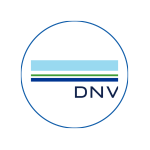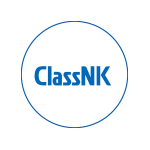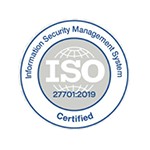Smart Ship Management
Smart Ship Management
The maritime industry is going through an adaptation process related to its working area and active use of technology. Intelligent ship management is now possible in the maritime industry, where digitalization is increasing day by day with ship management software and solutions. Before looking at the details that make this possible and how smart ship management can be, it is necessary to look at the needs of the maritime industry.
Low crewed ships with advanced technology require extensive control and monitoring to reduce operating costs and optimize fleet service. A period in which technology is used more actively in the maritime sector has begun in order to better manage the energy chain from suppliers to consumers. Obviously, fleet companies that have adapted to this period and prefer smart ship management have more fluid process management.
Needs of the Maritime Industry
A global shortage of shipping containers, ports becoming more and more congested, and cargo capacity restrictions on ships are among the maritime industry’s major problems. There is also a wide range of inefficiencies and suboptimal use of resources in the shipping industry. For example, wasteful fuel consumption and suboptimal use of ships are major problems.
The limited use of real-time data and technology in the maritime industry to predict arrival times and plan operations also negatively impacts the industry. The real-time optimization of these processes also increases the workforce of companies. For this reason, companies may have to manage the process with an outdated approach, such as estimating the arrival time of a ship without access to reliable data sources. Although this is a very old-school approach, it also causes a loss of workforce and time. In addition, the conditions at the ports or whether there are any possible problems with the cargo are among the things that should be known instantly.
Transit time reliability is critical to the industry and is an essential measure of operational performance. When we look at a typical voyage of fleet ships, it has to stop at several ports until it reaches its destination. Weather conditions, port congestion, and the need for fuel economy are all variable values. For this reason, the management of this process is complicated with manual methods.
Using data to help ships navigate ship routes efficiently, optimizing ships’ routing, accurately predicting arrival times, and reducing fuel consumption are essential real-time data solutions.
In addition, digital solutions are required in areas such as document management, including crew and security documents, which cover a large part of ship management. The continuity and failure of the communication between the company and the ship are among the most important needs of the maritime industry.
Digitalization and much more reliable software solutions are among the priority needs in the shipping and maritime industry, which is very variable.
What is Smart Ship Management?
When it comes to smart ship management, we come across digital solutions that allow minimal human error. Software solutions developed for the needs of the industry for ship and fleet management are a priority for smart ship management. Intelligent ship management; provides solutions that optimize the crew, procurement process, financial control, technical details, and operations. In addition, it makes it possible to manage issues such as ISM & Document, HSEQ, which are indispensable in the maritime industry, without any mistakes. Moreover, it enables companies to analyze their periods and view their closeness to their goals in the digital environment.
The advantages of smart ship management to users are as follows:
- It’s digital
- Suitable for both in-building and cloud-based use
- Provides the opportunity to manage difficult-to-manage processes such as crew, finance, or operations with minimum error
- In supply processes, the connection between the ship and the office can be uninterrupted
- The documents required for the ships are kept in the digital environment, thus shortening the port waiting times and preventing time loss.
- Possible disruptions in the ship’s route can be reported to the company instantly, critical, and the crisis processes are short-lived.
Software Solutions for Intelligent Ship Management
It can also provide layered optimization in fuel consumption, CO2 and carbon emission control, and energy efficiency with smart ship management software solutions that consider the applications of worldwide economic concepts and address the maritime industry regulations. Regarding the ecological conditions in the world and since maritime laws offer specific requirements, software solutions are the biggest helpers of companies to fully implement them.
Utilizing software solutions in vessel management helps to eliminate human errors and prevents accidents. Fleet companies and shipowners who prefer smart ship management can eliminate risk with good decision-making algorithms and effective decision-making systems. It can be ensured that operational or other processes caused by possible human errors are error-free.
By expanding the value chain while potentially minimizing maintenance costs with a more data-centric approach, these software solutions can better maintain safety and efficiency in operations and similar strategies.
Insights generated from big data enable better decision-making between functions on ships as well as ports. Big data analytics is still applicable today to meet current challenges and provides enhanced security, efficiency, and productivity. The smart solution is to implement systems that will automate much of this to increase productivity and reduce working hours.
The cloud service, which provides users with their cloud-based resources that they always and everywhere have over wired and wireless mobile terminals and therefore the Internet, stands out as a key sector in the 4th technological revolution.
Certificates & Class Type Approvals
Privacy Verified & Quality Validated in NOZZLE

Class Type Approval
by DNV

Class Type Approval
by CLASS NK

Information Security
Management

